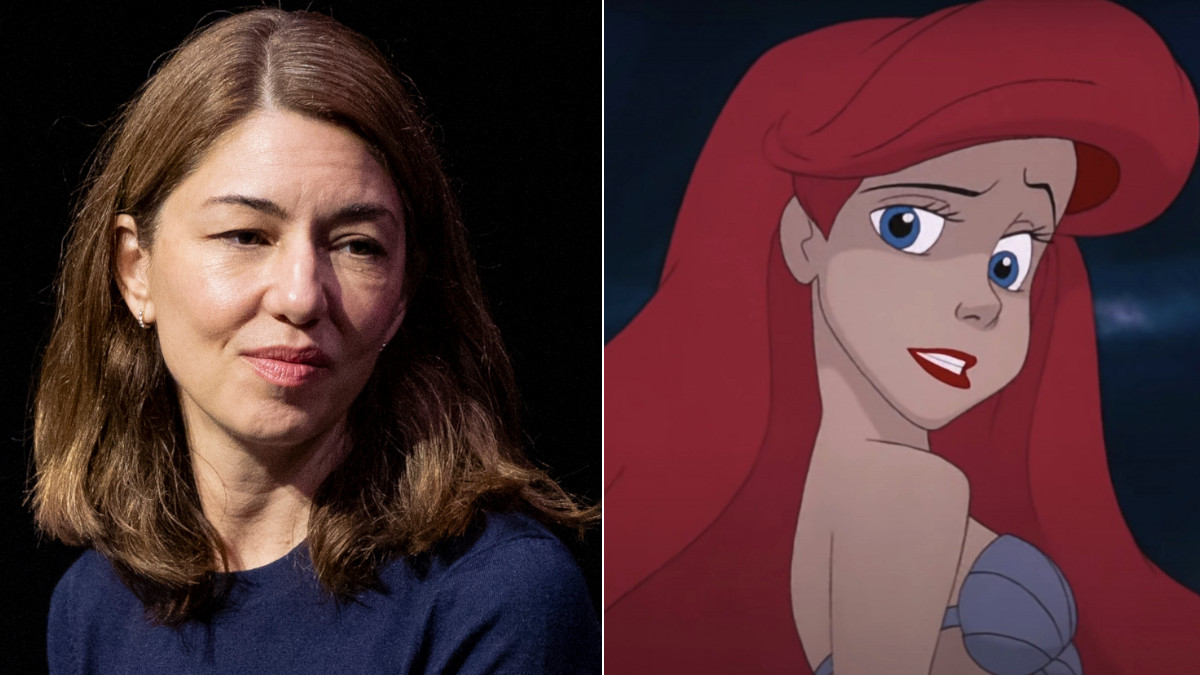Universal Wanted Sofia Coppola’s ‘Little Mermaid’ Movie To Appeal to … 35-Year-Old Men?

Sofia Coppola recently revealed the real reason why she dropped out of a Little Mermaid project set up at Universal Pictures several years ago. She left the production after she was bizarrely asked how the movie would appeal to audiences—specifically to 35-year-old men.
Sofia Coppola is best known for Lost in Translation and Marie Antoinette. Most recently, the filmmaker partnered with A24 on the upcoming biopic Priscilla, which is set to premiere widely on November 3. Once upon a time, though, she almost made a live-action The Little Mermaid film with Universal Pictures. This year saw Disney’s live-action remake of the animated classic hit theaters with Halle Bailey in the titular role. It was a nostalgic, visually stunning, and faithful adaptation, but Coppola’s Little Mermaid would’ve been markedly different.
The film Coppola envisioned would’ve tapped into The Little Mermaid‘s darker original story from Hans Christian Andersen, with Chloë Grace Moretz in the role of Ariel. However, Coppola’s ambitious adaptation never came to fruition. In 2015, she stepped down from the project, citing creative differences as the reason for her departure. The whole project unraveled after that and faded away as Universal failed to find another director. Given that Coppola once called giving up The Little Mermaid an “agonizing career decision,” many suspected there was more to the story of why she left.
Coppola has now revealed one particular moment that directly contributed to her abandoning the project.
Sofia Coppola reveals her breaking point on The Little Mermaid
In an interview with Rolling Stone, Coppola opened up about the real reason she left The Little Mermaid. The filmmaker said she realized that she needed to leave when a studio executive indicated that the film needed to appeal to 35-year-old men. “I was in a boardroom, and some development guy said, ‘What’s gonna get the 35-year-old man in the audience?’ And I just didn’t know what to say,” recalls Coppola. “I just was not in my element. I feel like I was naive, and then I felt a lot like the character in the story, trying to do something out of my element, and it was a funny parallel of the story for me.”
It’s understandable that Coppola wouldn’t know how to respond to that question. What does it even mean?
It’s one thing to consider the target audience, but to be explicitly asked how the film will appeal to 35-year-old men is very strange, especially since it was already clear that Coppola’s Little Mermaid was going to be more mature than Disney’s animated film. The dark fairy tale or fantasy aspect should’ve been enough to appeal to older audiences. Then there’s the fact that, obviously, a female-led film starring Moretz as a darker, modern Ariel would likely be aimed more at women than men. What more did that exec want? What did he have in mind that would intrigue the narrow target audience of a 35-year-old man?
Coppola suggested that part of the problem was that “straight men” are often financing these movies. However, they need to realize that not everything women filmmakers put together will appeal specifically to them. She told Rolling Stone, “It happens a lot because usually the people financing things are straight men. So it’s not the same point of view, but you’re trying to explain, like, ‘People, not everyone’s gonna be into what you’re into,’ but I just wanted to make things that appeal to me and express that.”
Coppola is one director whose vision shines so clearly through every film she makes, especially with her emphasis on speaking through visuals. It’s not hard to imagine Coppola being put off by someone insinuating that she, a decorated filmmaker, change her artful vision to ensure it considers whatever a 35-year-old man wants from a fairy tale movie. Her tale is a small look into what it’s like for female filmmakers who are blocked from expressing their art because of what male executives want in a male-dominated industry. It’s outrageous that any female-led project would be forced to consider the male perspective. Imagine if Barbie had to appeal to 35-year-old men instead of just being what women wanted—it would’ve ruined the entire film.
Women filmmakers should be allowed to make art without being peppered with bizarre questions about how films that aren’t for men will appeal to 35-year-old men.
(featured image: Emma McIntyre, Getty Images / Walt Disney Studios Animation)
Have a tip we should know? tips@themarysue.com